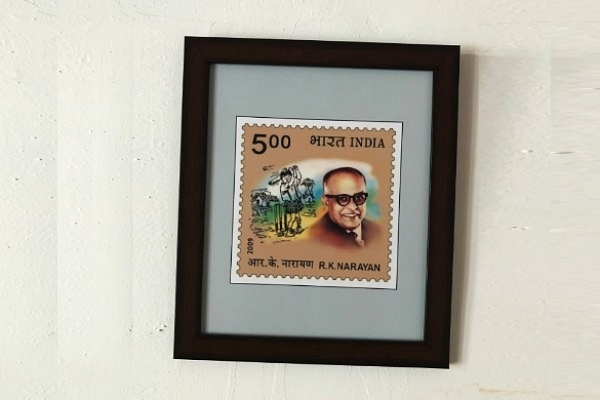
Celebrating The Man Who Took Us All To Malgudi
The creator of Malgudi was born on this day, in 1906. Here’s a tribute to that master of simplicity.
‘What’s special this 10 October?’ I asked. ‘I don’t think, there will be anything. As the city is gearing up for Dasara, and the city corporation is caught up with other civic issues,” replied the personnel in-charge, as I was walking out of the house of the man who had transported an entire generation of Indians to a town that didn’t exist.
R K Narayan took us all to a town he created. Malgudi acquainted us with characters of such simplicity yet such finesse that most of us who met them never let them go. Like a colleague remarked when I mentioned Malgudi some time back, ‘Oh I wanted to grow up and marry Swami,’. Such was the spell he cast.
And as someone who dreamt of holding the pen for life and a living, this trip to the house of the man who was among the very first to do just that, was nothing short of a pilgrimage.
A fortnight ago, on the death anniversary of Shankar Nag, the man who brought R K Narayan’s Malgudi in to our living rooms, I saw R K Narayan smiling through his almost shut eyes, at the book stall at Ranga Shankara. It was the cover of the book, The Very Best of R.K. Narayan: Timeless Malgudi which then gave me company the whole evening and now in retrospect looks like it was then that he decided to take me to this space where R K Narayan became R K Narayan and Malgudi became Malgudi.
Not many who visit Mysuru, the city of palaces, would also head to discover that it is also the city of many a museum. And the residence of this famous writer is now one among them. It was with great joy and reverence that I stepped into this simple structure which was until a few years ago in bad shape until the city corporation repaired it and turned it into a museum.
This house that was opened to the public in 2016 was his writing abode. This was where he created every single character of Malgudi. Swami was born here and so was the postman.
So this piece, that gives a virtual tour of his house is my little tribute to the man who gave us Malgudi:
Through memorabilia and his articles, some of which were donated by his granddaughter Bhuvaneshwari who lives in Chennai, his medals, his books both ones he read and wrote, and through anecdotes shared by his contemporaries that are printed and put up on the walls, one can step into the times in which he lived, the times through which he wrote, especially the trying ones, like the death of his wife and his daughter.
But stepping into that room in which he wrote, the longish one with a curved wall that has five windows that give a 180 degree view of the outside and sitting down at the table, where he is said to have sat down to write, was surreal. The house may have been revamped, the walls repainted but the characters were all still there. Malgudi was still there. The only two other visitors who had walked in had left long back and the person in-charge, who initially kept a watch on the visitors movements, too went back to the entrance after I sat down at that table. ‘Do not Touch’ it read. No one who had been touched by the writer would anyway want to.
On the walls on either side of the table were images from the Malgudi that Shankar then trans-created for television.
It was like watching both the birth and the rebirth of Malgudi right there.
And through the window, as the guide pointed, out stood the tree , the champa tree that he himself planted. And among the many ‘quotes’ of his that line the house is one that reads, “This is my child. I planted it. I saw it grow. I loved it. Dont cut it down...”.
I later went up to the tree that he planted. It stands tall bearing flowers whose perfume lingers on just like the magic of his words. I picked up a flower, placed it between the pages of the book that led me there, marking the culmination of the pilgrimage. Maybe it is hyperbolic but then if you have ever had a spell cast, then visiting the land of the magician is bound to be so.